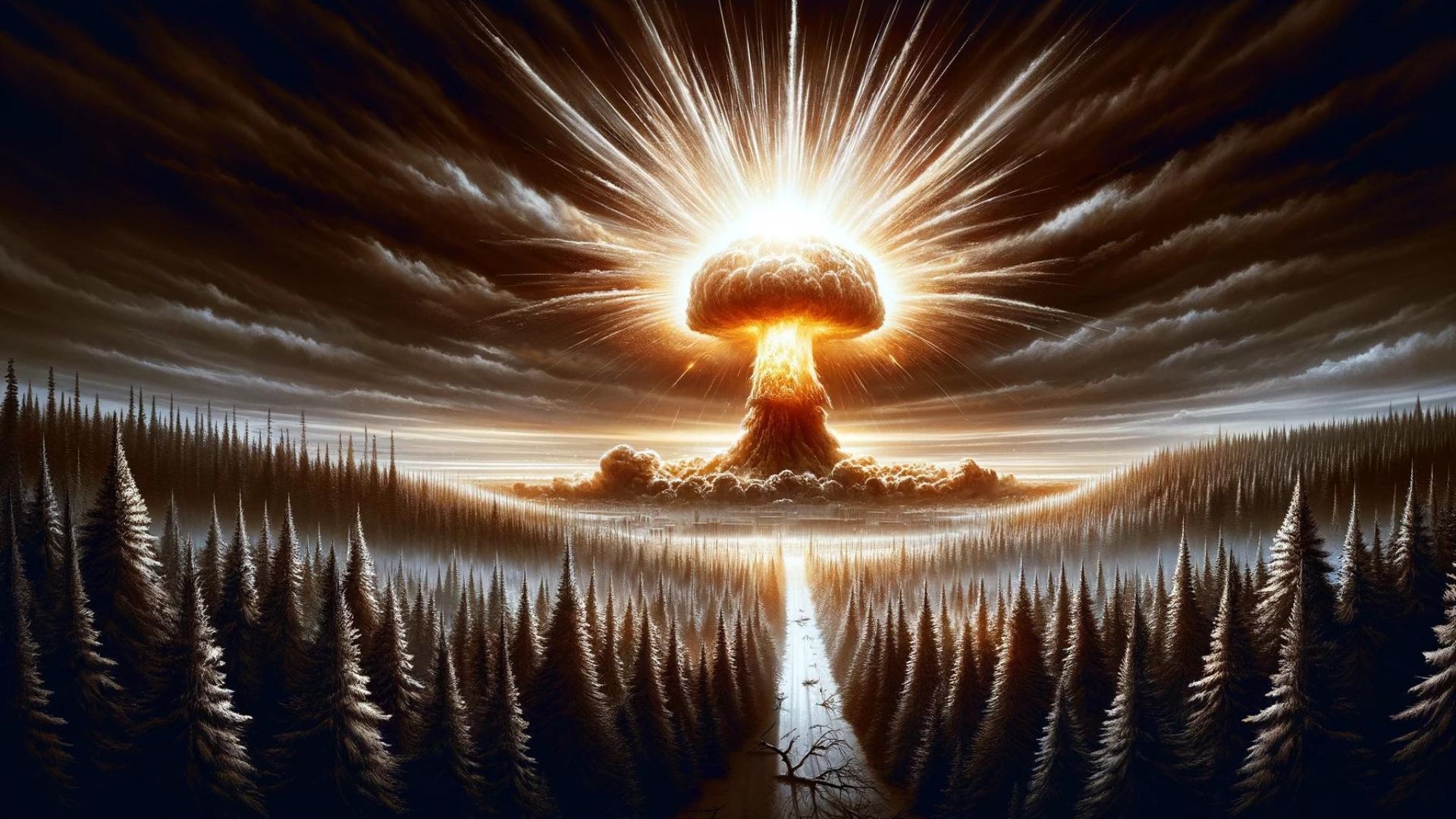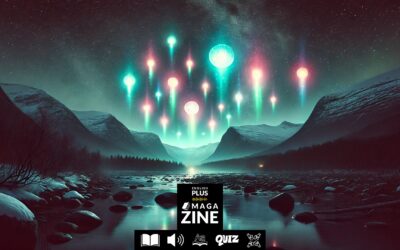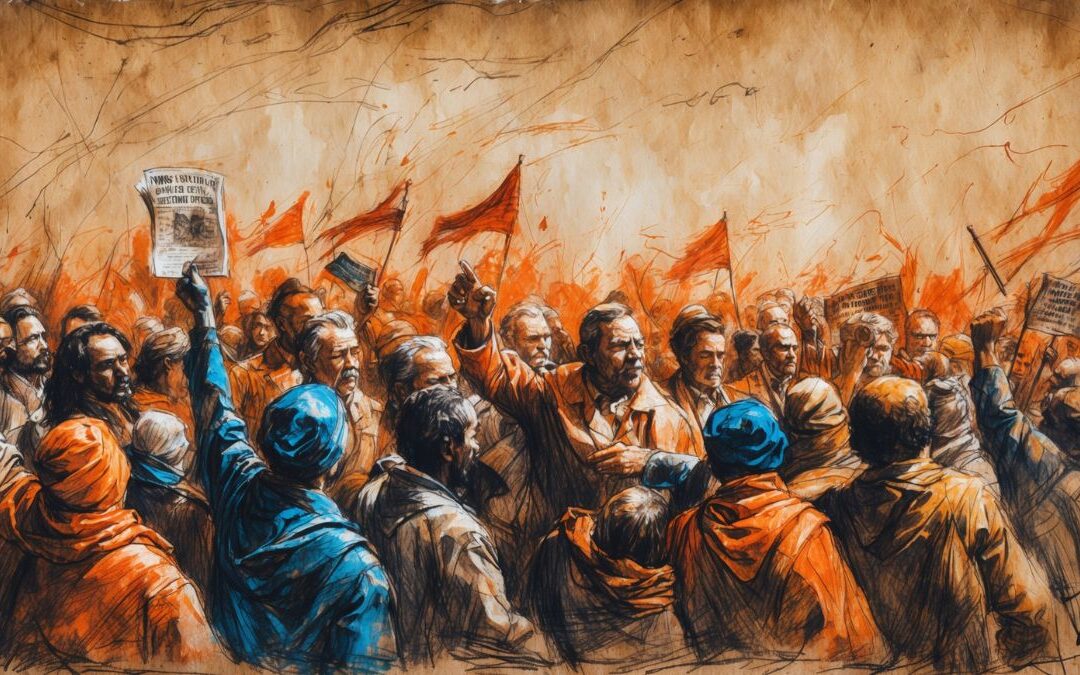The Tunguska Event
Imagine waking up one ordinary morning in a remote Siberian forest. Suddenly, the sky blazes with blinding light, hotter than the sun itself. A deafening roar tears through the air, followed by a shockwave so powerful it flattens trees for miles around. What just happened?
This was the reality for those near the Podkamennaya Tunguska River on June 30th, 1908. The Tunguska Event remains one of the most bewildering natural disasters in modern history. To this day, scientists grapple with the true cause of this massive explosion.
The blast itself was extraordinary. It registered on seismographs across the globe, and the resulting glow in the night sky was visible as far away as London. Yet, remarkably, no impact crater was ever found. So what on Earth – or perhaps not on Earth – caused such devastation?
The leading theory suggests a meteoroid or comet slammed into our atmosphere and disintegrated before hitting the ground. This would explain the immense airburst, like a cosmic pressure cooker exploding over Siberia. But why no crater? Some scientists propose the space rock was unusually fragile, turning to dust upon impact.
Other theories are far more outlandish. Did a miniature black hole briefly pierce our world? Was it an experiment with early antimatter technology gone horribly wrong? Perhaps even an alien spacecraft malfunctioning? While tantalizing, these fringe theories lack solid evidence.
The Tunguska Event stands as a chilling reminder of the universe’s unpredictable nature. Even in the early 20th century, Earth remained vulnerable to unseen cosmic threats. Thankfully, the impact occurred over sparsely populated taiga. Imagine the destruction if a similar event happened over a major city today.
The mysteries of Tunguska may never be fully solved. Yet the investigation continues. Scientists revisit the blast site, hoping new clues may be buried in the Siberian soil. Advancements in space monitoring allow us to track near-Earth asteroids, reducing the chances of being caught so dramatically off-guard again.
Action Point
The Tunguska Event is a fascinating story of cosmic chance. Want to delve deeper into space hazards? Explore online resources about asteroid tracking and planetary defense initiatives. Being aware of potential threats is the first step towards protecting ourselves – because we never know what the universe might hurl our way next.
Why Should You Care?
- Cosmic awareness: The Tunguska Event showcases the Earth’s vulnerability to unexpected impacts from space. It’s a reminder that we’re part of a dynamic solar system with potential hazards.
- Scientific curiosity: This event is a cosmic puzzle that continues to intrigue scientists. Understanding how they investigate it fosters an appreciation for the scientific process.
- Preparedness: Learning about past impacts highlights the importance of modern asteroid tracking and planetary defense initiatives to minimize future risks.
Key Takeaways
- The Tunguska Event was a powerful explosion of unknown origin in Siberia in 1908. It had no impact crater, fueling ongoing scientific debate.
- The most plausible explanation is a meteoroid or comet airburst. Other theories, like black holes or alien technology, are intriguing but less supported.
- This event underscores the ongoing risk of cosmic impacts. It highlights the need for continued asteroid monitoring and defense planning.
Keywords
- Tunguska Event: The 1908 explosion in Siberia.
- Siberia: The vast region in Russia where the event occurred.
- Meteoroid: A small rocky or metallic body traveling through space.
- Comet: An icy body from the outer solar system that releases gas and dust as it nears the sun.
- Airburst: The explosion of a cosmic body in the atmosphere due to intense pressure.
- Impact crater: A bowl-shaped depression formed by a meteorite or asteroid striking the surface.
- Black hole: A super-dense region of space with gravity so strong nothing can escape, not even light.
- Antimatter: Matter composed of antiparticles, which annihilate with normal particles, releasing energy.
- Asteroid tracking: The process of monitoring near-Earth asteroids that pose potential impact risks.
- Planetary defense: Efforts to develop strategies to deflect or destroy hazardous asteroids or comets.
Frequently Asked Questions
- Could a Tunguska-level event happen again? Absolutely. While large impacts are rare, smaller ones occur more frequently. Chelyabinsk, Russia, experienced a significant meteor airburst in 2013.
- Are we doing enough to protect Earth from asteroid impacts? There’s been much progress, but continued investment in detection and defense technologies is crucial.
- What would happen if a Tunguska-sized object hit a major city? The devastation would be immense, underscoring the urgency of planetary defense.
Myth Buster
- Myth: The Tunguska Event was caused by a UFO crash, or alien weapon.
- Reality: While an exciting idea, there’s no credible evidence to support this. The scientific consensus leans towards a natural, cosmic origin.
Let’s Talk!
- Do you think investing in planetary defense is a worthwhile priority? Why or why not?
- If you could ask a scientist investigating the Tunguska Event one question, what would it be?
- How does our understanding of the Tunguska Event influence how you see Earth’s place in the cosmos?
Let’s hear your thoughts in the comments below!











0 Comments